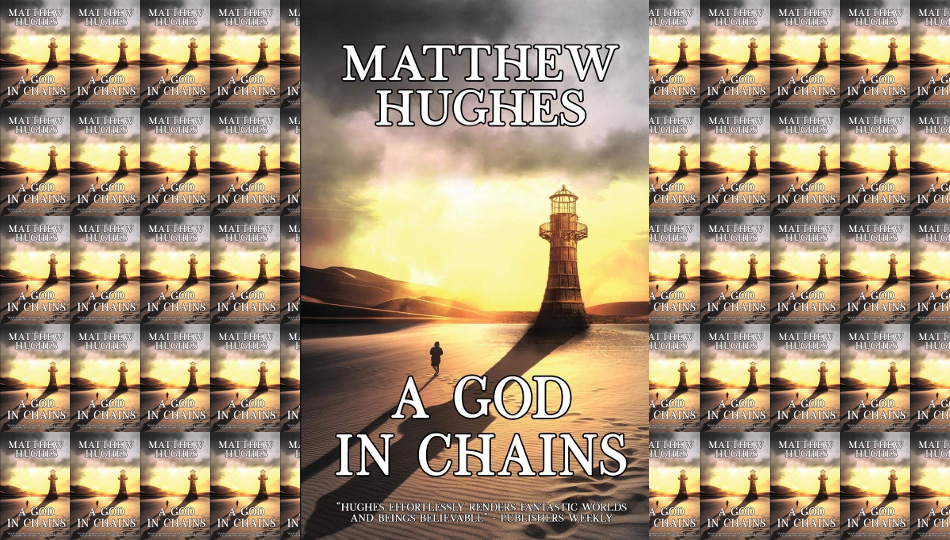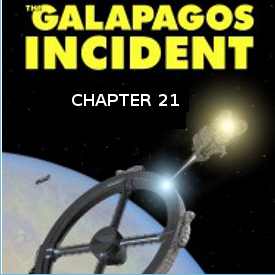 So what happens when space travel becomes routine? When does a colony on Mars become just another small town? And what happens when robots find God? These questions and more are explored in Lou Antonelli’s Another Girl, Another Planet.
So what happens when space travel becomes routine? When does a colony on Mars become just another small town? And what happens when robots find God? These questions and more are explored in Lou Antonelli’s Another Girl, Another Planet.
Set in the 1980s in a timeline where the Space Race takes a different turn thanks to “Admiral” Heinlein, a young Dave Shuster is just coming off a failed campaign for Congress as a Republican in a New York City district. He still did well enough that his bosses decide to throw him a bone and get him appointed to a position on the staff of Mars’ colonial government. When he arrives on Mars, however, he discovers that the governor is dead and he is now acting administrator of the entire colony. Not one to waste time, Dave immediately dives into the administration of the colony and does well enough, making many friends and even a few enemies, especially the head of the main android manufacturer on Mars.
In fact androids are pretty prevalent across the entire colony and because of how life-like they look, many have trouble telling them apart from real humans. Dave initially shrugs it off, but when he spots his ex-girlfriend, who was kidnapped after he left for Mars and is presumed dead, he begins to wonder if there are some secrets on Mars that someone does not want him to know…
First, let me talk about what I liked about Another Girl, Another Planet. It’s an optimistic alternate history where Robert A. Heinlein is able to convince the American President (Henry Wallace in this timeline instead of Harry Truman) that US-Soviet cooperation in space exploration is a good idea. Turns out it is: by the 1980s, both the Moon and Mars have been visited and colonized. US-Soviet cooperation in space also has the indirect benefit of easing tensions Earthside as the Soviets lose their revolutionary zeal. Technology is also more advanced and you even have flying cars crisscrossing across New York City.
Another Girl, Another Planet is certainly an optimistic alternate history, but those are rare enough; I enjoy authors attempting to create a timeline where things went better then they did in our 20th Century, even if some might question how plausible those timelines could be. More importantly, I always enjoy alternate takes on the Space Race, and a timeline where there was greater interest in space exploration was certainly fun to look at. I also liked the moments of world building done such as when Dave is the guest of honor at an irreverent Martian party. I also chuckled when a Martian protester called Dave an “outlander” because it got me wondering if the Martians were becoming Scottish Highlanders.
Next, we need to discuss what I didn’t like about the book. For one thing, there were times I thought I was being lectured to about politics. Lou’s alternate history comes from a conservative viewpoint, which is perfectly fine since many alternate historians will use their personal biases in directing where they want to take their story, but there are ways to be subtle about such things and ways not to be. I really felt it was being hammered in about how great things were going after Republicans controlled the White House for twenty-something years, but thankfully this was only in the first few chapters and when the main plot kicked in things became more enjoyable. Also I noticed several typos and other errors throughout the text. They were never enough to take me out of the story, but they were noticeable and WordFire Press should probably talk to their editor about that.
Actually what bothered me most about Another Girl, Another Planet was the surprise ending and if you don’t want that spoiled for you, I would skip to the final paragraph.
I’ll try not to give too much away, but the ending goes as follows: the bad guys are beaten, but Dave has stepped on enough toes that he is being recalled to Earth. He falls asleep on the ship taking him home, but then he wakes up on a bus…on our timeline, where there was never a colony on Mars. Dave doesn’t know what happened but he makes the best of it. Decades later a Chinese rover comes upon a graveyard on Mars, Dave is confronted by government agents and spills the beans that he was the one who created it and explains how it ultimately came to be.
Now on one hand this is nice nod to works like Ward Moore’s Bring the Jubilee, which was a time travel/alternate history story that had a similar ending…except there was some build up beforehand that all of history could be altered if you weren’t careful about how you used time travel. In Another Girl, Another Planet, there isn’t any build up really. There is never any real discussion about time travel, parallel universes, the multiverse, etc. Dave just goes to sleep on one timeline somewhere between Earth and Mars…and then wakes up on a bus on Earth. It completely came out of left field and the story probably could have been ended without it.
Despite the head-scratcher of an ending, I still enjoyed Another Girl, Another Planet. It was one of those rare optimistic alternate histories that still managed to convey an interesting story. Although it had a few hiccups, the mystery at the heart of the story kept me intrigued enough to want me to know just how it would be resolved. If you are curious at all about one way humans might have flown farther than the Moon, then you might want to pick up Lou Antonelli’s Another Girl, Another Planet.










